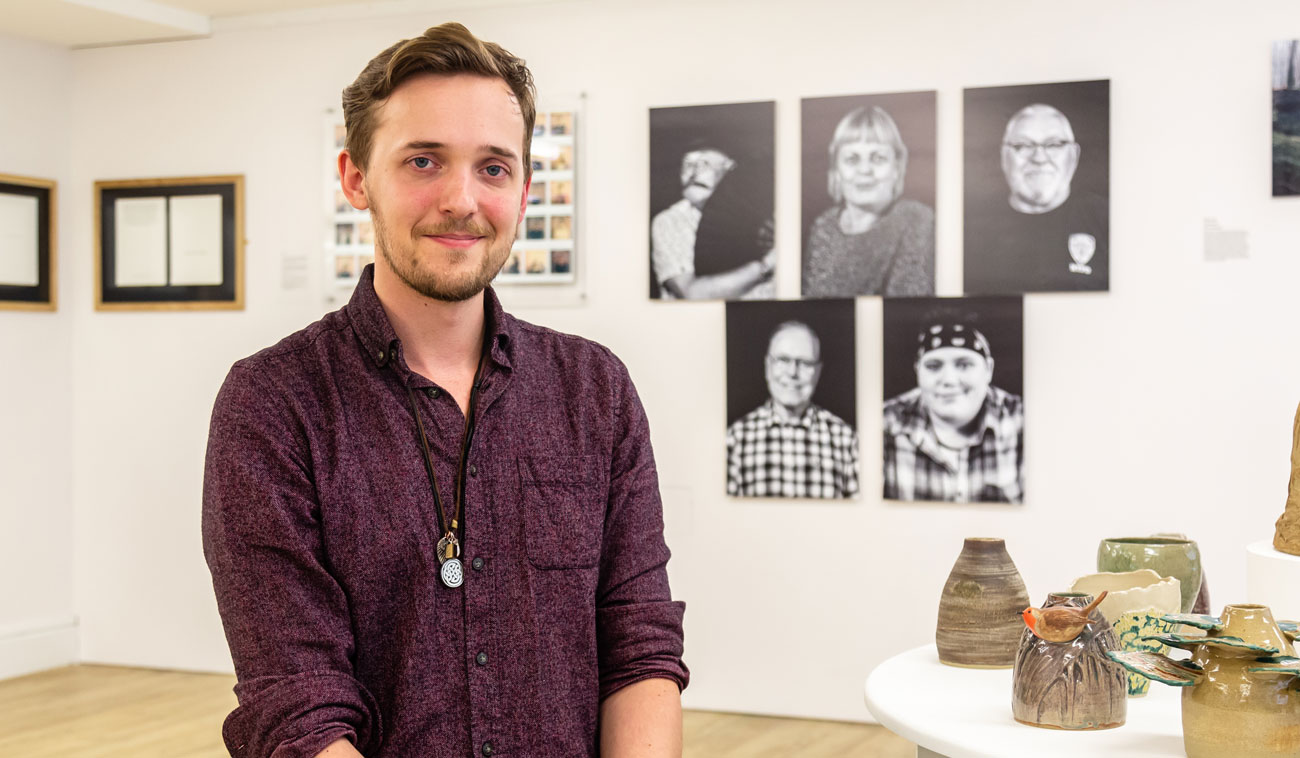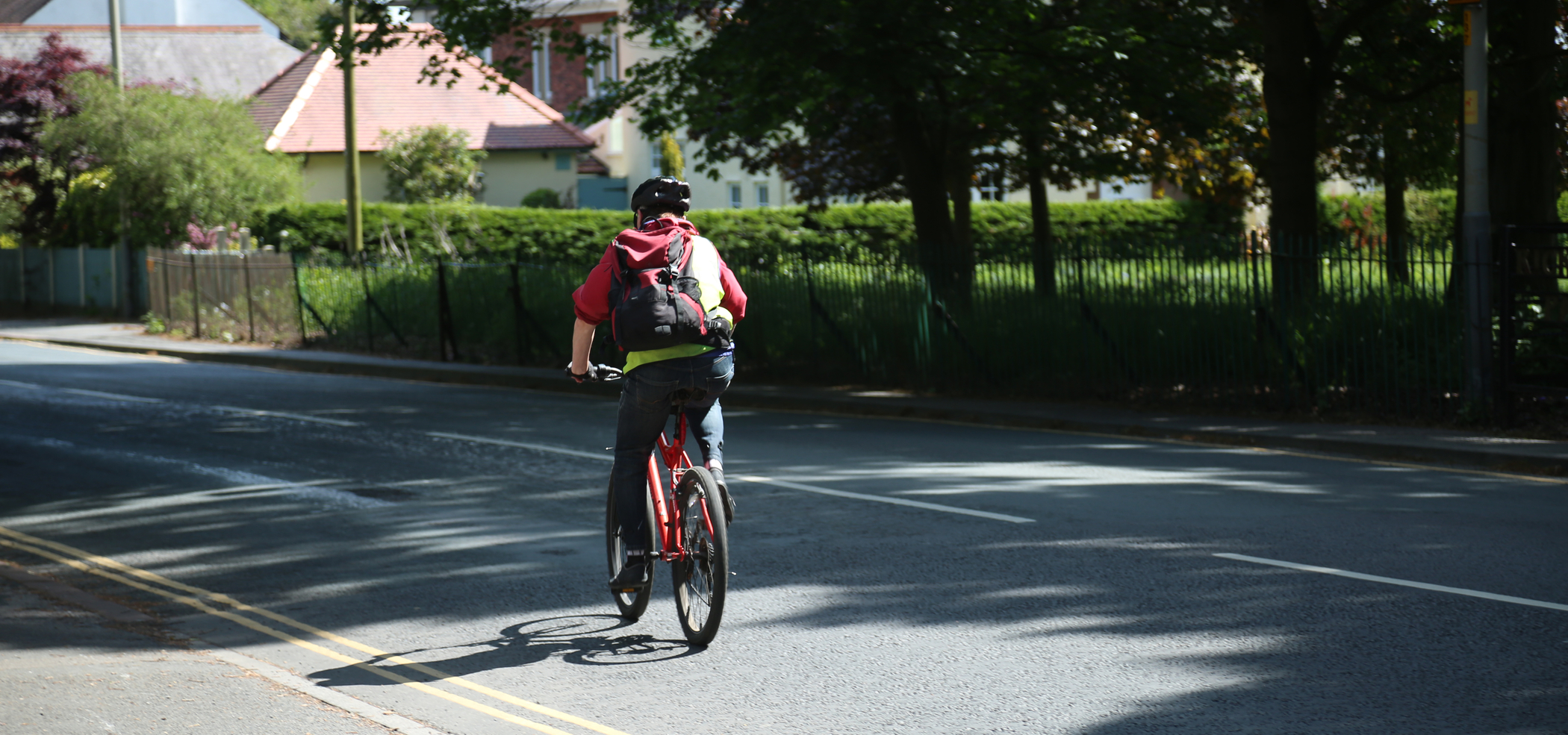
Applying to university can feel like a daunting task, but if you break it down into manageable chunks, you’ll have plenty of time to make your application as strong as it can be and find the course of your dreams.
Here are our four simple steps to the undergraduate application process so you feel confident and prepared. Let’s get started.
Choose what you want to study and where you want to go
When applying to university, one of the most important steps is deciding what you want to study and where you want to go.
If you're undecided about which course to apply for, consider what excites and motivates you—whether it's a passion for science, an interest in the arts, or a career-driven focus like law or engineering. Spend time looking into the details of your potential courses: What modules will you study? How will you be assessed? Are there work experience opportunities?
Your university experience isn’t just about academics, though. When exploring your options, think about how far away from home you're willing to go and whether you prefer the close-knit feel of a campus university or the independence of being in a city. You might also want to investigate the cost of living in each town/city, your accommodation options, and the availability of public transport.
Attending open days is one of the best ways to get a sense of what a university is really like. Walking around the campus, speaking to current students, and experiencing the atmosphere first-hand can make all the difference in your decision-making process.
Register on UCAS and write your personal statement
All full-time undergraduate applications should be made on ucas.com. The UCAS Equal Consideration Deadline for September 2025 entry is 29 January 2025, and you can apply for up to five courses.
Your UCAS application is made up of your personal details, your education and employment history, your course choices, a reference, and your personal statement.
Your personal statement is the only part of the application where you can write in your own style – it’s your opportunity to tell universities why you’d like to study with them, why you’re interested in your chosen course(s), and what skills and experience you have. We have a detailed guide on crafting a university personal statement, so be sure to check this out for more information and advice.
What is the Equal Consideration deadline?
While you can still apply to university after 29 January 2025, your application doesn’t have to be considered equally. Universities can also close applications for courses that have filled up after this date, so if you're applying for a competitive course, this is worth bearing in mind.
Come for an interview or submit a portfolio
Some of our courses, such as those in healthcare, teaching and policing, will require you to attend an interview. If you’re applying for one of our arts courses, you may be asked to attend an interview and/or submit a portfolio.
If you’re invited to an interview, a little preparation beforehand can ease your nerves and help you feel more confident. We recommend:
- Sorting out your travel and accommodation arrangements (if your interview is being held in person)
- Ensuring your laptop is set up correctly and that you have access to the relevant software e.g. Microsoft Teams (if your interview if being held virtually)
- Thinking about why you want to study your course at this university
- Reading through your personal statement again
- Planning some of your own questions to ask the interviewer(s)
- Reading up on current affairs relating to your subject
- Carrying out a mock interview with a parent or teacher
If you’re asked to produce a portfolio, start by reading over any guidance provided by the Admissions Team so you understand what it is you need to produce and how the portfolio needs to be submitted. While each course will have its own requirements, there are a few things to bear in mind:
Focus on quality over quantity: Choose a selection of your strongest work – be sure to select a variety of pieces that showcase your artistic abilities, creative vision and technical skills.
Showcase your processes: As well as your finished pieces, include elements of your creative process too, whether that’s research, sketches, drawings or case studies. Providing evidence of your process will enrich your portfolio and provide an insight into your thought process.
Prepare a statement: Alongside your portfolio, consider preparing a short statement that offers a description of your work. You could also talk about why you’ve chosen to include the featured artwork in your portfolio.
Our Admissions Team will get in touch with more information if you need to complete one of these as part of your university application.
Understand and accept your offer
Once our Admissions Team has reviewed your application, you’ll receive an email letting you know there’s an update to view in your UCAS Hub. There are two types of offers you could receive: conditional or unconditional.
A conditional offer means that you are required to meet certain conditions before beginning your degree with us. A condition of offer may be:
- Getting specific grades/UCAS Tariff points in your current qualifications.
- GCSEs at Grade 4 or above (or equivalent) in specific subjects.
- Completing criminal background and medical checks.
Where you have already met the entry requirements, you may be offered an unconditional place. If you get an unconditional offer, this could be because you’ve taken a break between leaving school or college and applying to university and already have your exam results at application stage.
Accepting your offer
Once you are in receipt of all your university decisions, you can accept your preferred offer over on UCAS Hub.
If you have an unconditional offer, you will only have to select a firm place. If your offers are conditional on exam results or other requirements, you will need to pick two acceptances – a firm and an insurance.
In your UCAS Hub, you'll be able to see your deadline for submitting your replies - it’s essential that you reply to your university offers before this date, otherwise they will automatically decline.
Want to find out more?
You are ready to take that next step. Ready to make that life-changing decision and work towards your career goals. By downloading our prospectus you will have the world at your fingertips.
You can browse our 100+ unique course options and have access to finance and support information to get you started. Discover all of the courses available to you from Arts to Zoology – we’re excited to see what you choose.


.jpg)

